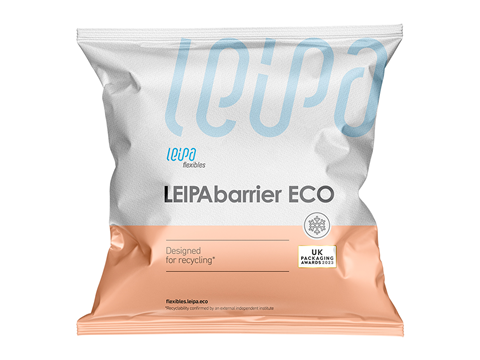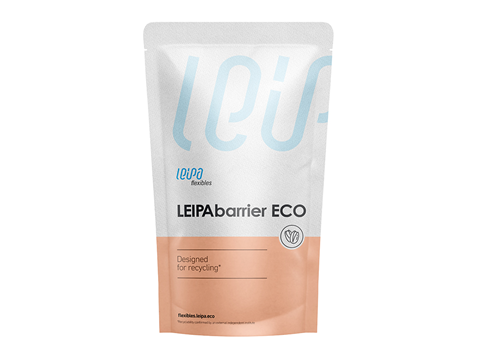
In this edition of the Spotlight, Leipa outlines the ‘paperisation’ shift from plastic packaging to paper-based alternatives, and the benefits and challenges of paper composites.
As global environmental awareness intensifies, the flexible packaging industry is undergoing significant changes. One of the most prominent trends is ‘paperisation’, the shift from traditional plastic packaging to paper-based alternatives. This movement is driven by the positive perception of paper, increased consumer demand for sustainable options, and regulatory pressures to reduce plastic waste. However, the complexities of ‘paperisation’ raise critical questions about the true sustainability of these new materials.
The rise of paper composites: benefits and challenges
Paper composites, such as those offered by LEIPA Flexibles, are becoming viable alternatives to plastic in flexible packaging. These materials combine the versatility of paper with functional benefits like barriers and sealing properties typically provided by plastics. LEIPAbarrier ECO, one of LEIPA’s innovations, exemplifies this trend by offering a purer fibre content of up to 80%, enhancing recyclability and resulting in higher-quality recycled paper.
Challenges persist with the so called ‘smart papers’, which often contain less fibre than traditional PE-coated papers, complicating recycling due to the inclusion of non-fibre materials like waxes and polymers in the pulp mix. These can disrupt recycling streams, resulting in lower-quality recycled products with weaker properties.
While regulations like Germany’s 95:5 paper-to-plastic ratio aim to limit non-fibre materials to 5%, achieving necessary packaging protection with such a low plastic content is difficult. The functionality is often maintained by adding non-fibre materials elsewhere, meaning the goal of significantly reducing plastic content remains unsolved and may negatively impact both recycled paper quality and the recycling process.
Pros and cons of paper in flexible packaging
The shift towards paper in flexible packaging offers several benefits, including reduced plastic waste, a lower carbon footprint, and, in some cases, biodegradability. Advances in barrier technologies now enable paper composites to meet the demanding requirements of food and other sensitive products, providing protection against moisture, grease, oxygen, and light.
However, paper-based packaging often requires more material to achieve the same strength and durability as plastic, potentially leading to higher costs and increased resource use. The recyclability of paper composites is also dependent on local recycling infrastructure, which can vary significantly.

End markets and regional trends
‘Paperisation’ is gaining traction across various end markets, including food and beverage, personal care, and retail. Particularly in Europe, the trend is supported by stringent regulations aimed at reducing plastic waste and promoting recycling, along with the positive consumer perception of paper packaging. The adoption of paper-based solutions is also driven by the needs of the retail sector, both in physical stores and e-commerce.
As demand for sustainable packaging rises in regions like Europe, North America, and Asia, the challenge remains to balance sustainability with maintaining packaging performance and cost-effectiveness.
Conclusion: navigating the future of sustainable packaging
The trend towards ‘paperisation’ marks a significant shift in the flexible packaging industry. LEIPAbarrier ECO represents a responsible approach, meeting composite functionality, efficient recyclability and sustainability needs.
As the industry evolves, the focus must remain on developing materials that contribute to a circular economy, minimizing environmental impact while satisfying consumer and regulatory demands.
Some more information about LEIPAbarrier ECO and other sustainable flexible packaging solutions provided by LEIPA Flexibles can be found on the website: flexibles.leipa.eco.
If you want to learn even more about LEIPA Flexibles possibilities, visit booth 5-328 at Fachpack 2024 between 24-26 of September, or send an inquiry to: flexibles@leipa.com.
This content was sponsored by Leipa.










